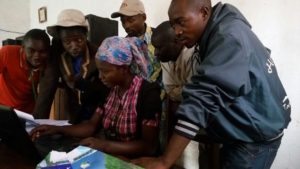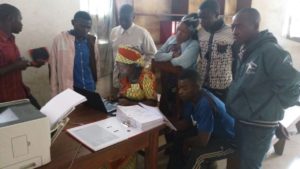
21 Aug 2017 GLTN SUPPORTING LAND REFORMS IN THE DRC
The Land and GLTN Unit within the UN Habitat is working with the Christian Biingual University of Congo/l’Université Chrétienne Bilingue du Congo (UCBC) on a project that aims to support the North Kivu provincial government in formulating and implementing land reform programmes in Beni and the greater Eastern Congo at large, through the use and application of GLTN land tools. The partnership seeks to support land dispute resolution mechanisms, promote advocacy on the land reform initiatives as well as develop the capacity of key land stakeholders including the provincial land administration office.
The project will also develop the capacity of land administration and other change agents to understand and implement GLTN’s tools and approaches including the Social Tenure Domain Model (STDM); Participatory Enumerations, Land Mediation and the Gender Evaluation Criteria; and Land Use Planning for Tenure Security.
The UCBC and GLTN have been conducting training to benefit different stakeholders including UCBC staff who are to support the Beni land administration for the implementation of Land Information Management System using STDM. These trainees will be subsequently deployed to the three provinces; North-Kivu, South-Kivu and Ituri in Eastern DRC
to support the setting up of LIMS based on STDM. The partners have also trained change agents (land administration officers, municipalities, local chiefs and customary chief, urban planners, civil society personnel, journalists, UCBC staff) in land mediation and the Gender Evaluation Criteria.
This engagement builds from an earlier project in 2009 in North Kivu Province where a 24 hectares piece of land was secured from a concessionaire, (the holder of a concession/grant, for the use of land), for approximately 609 returnee households previously displaced by war, through UN-Habitat’s land mediation interventions, allowing peaceful cohabitation between the villagers and a concessionaire.
The Social Tenure Domain Model (STDM) has been acknowledged by North Kivu’s Provincial Land Ministry as well as the community members as an all-important tool for recording the land rights.
We shall be sharing progress on this project on this platform and on the GLTN website at gltn.net








No Comments